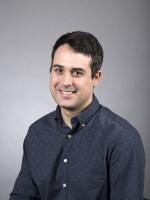Representatives of the equine industry in New York state testified before a state assembly committee today on their concerns about how upcoming changes in the state’s gaming landscape could negatively effect horse racing and breeding.
According to a 2012 study commissioned by the State of New York, 33,000 fulltime workers – including trainers, breeders, track workers, hay farmers and other affiliated industries – are supported by the equine industry in the Empire State.
However, at a hearing before the Assembly Committee on Racing and Wagering, industry representatives outlined ways they think the state can improve its support.
Jeffery Cannizzo, Executive Director of NYS Thoroughbred Breeders, said the gaming revenues from the Video Lottery Terminal facilities in New York has greatly bolstered purses at race tracks and the breeding industry, keeping New York ahead of the pack in the growth in the industry.
Cannizzo said the number of mares bred in New York over the last two years has had double-digit percentage increases, and investments from outside of New York are also on the rise.
But he said, uncertainty in the future of the industry is holding back even stronger growth.
“People aren’t necessarily diving in with both feet. People are stepping in one toe at a time here in New York. And I think that if there is anything the state can do to further create protections for our industry and remove some of the uncertainty that’s wrapped around the future for our industry, I think you’re going to see further economic growth here, and the sky really is the limit.”
Joseph Faraldo, president of the Standardbred Owners of New York was concerned that the arrival of casinos with New York’s recently approved amendment, which will allow up to 7 Las Vegas style resorts with table games, could divert players and revenues away from VLT facilities that benefit breeding programs.
“We have electronic craps at Yonkers, we have baccarat at Yonkers…the revenue stream there is going to dry up because now you’re going to have a roulette with manned people at a smaller percentage – we don’t get any part of that – and it’s going to erode and cannibalize the revenues that we got.”
Rick Violette, President of the NY Thoroughbred Horsemen Association, suggested that with the arrival of casinos, and with the likelihood that VLT parlors will apply for casino licenses, the formula for revenues to be dedicated towards breeding should be adjusted.
“That revenue stream needs to be followed through, and there’s a difference between VLT’s and slot machines. So there’s going to have to be an adjustment and further continuation of that revenue,” said Violette. “Absent those real commitments it’s very tough for people to come into New York state because you just don’t know when the plug is going to be pulled out of the pool.”
Assemblymen Jim Tedisco, a Republican of the 112th district, which includes a large portion of Saratoga County, an area known for horse racing, as well as industry-supportive farmland, said he’d be willing to take a look at making adjustments to the state’s support system in the future.
"I don't know exactly what the formula would look like, or what the revenue would look like - that's something that we've got to shake out as we put these table games together," said Tedisco. "We know there's probably going to be more revenue, and what I'm supporting is an expansion of some of that revenue. Keeping the tourism industry expanding - that was the point of VLTs, and providing more funding for education and the farm industry."
At the hearing, attendees also expressed concerns over the a lack of state funding for racehorse retirement, the lack of a state law preventing the transport of horses for slaughter, doping and illegal drugs in the racing industry, among other issues.





